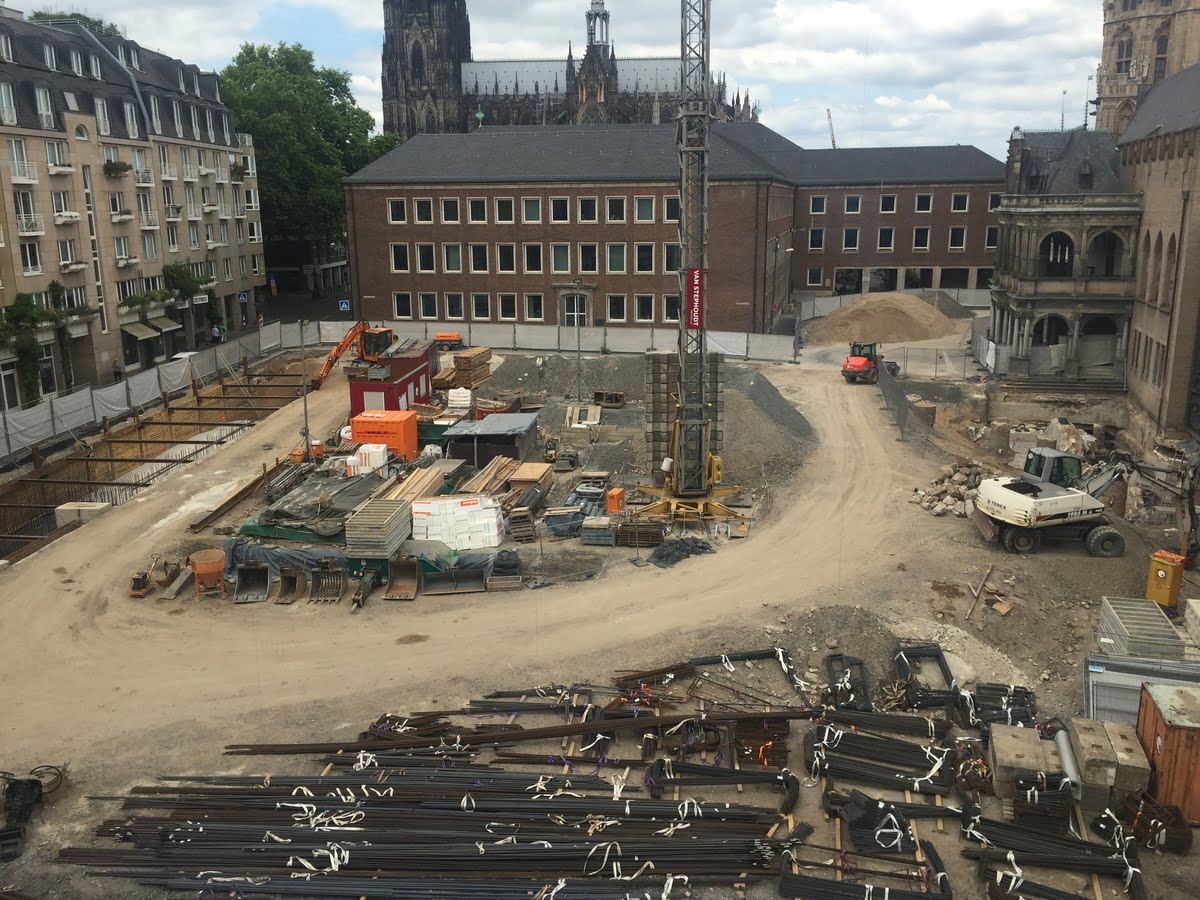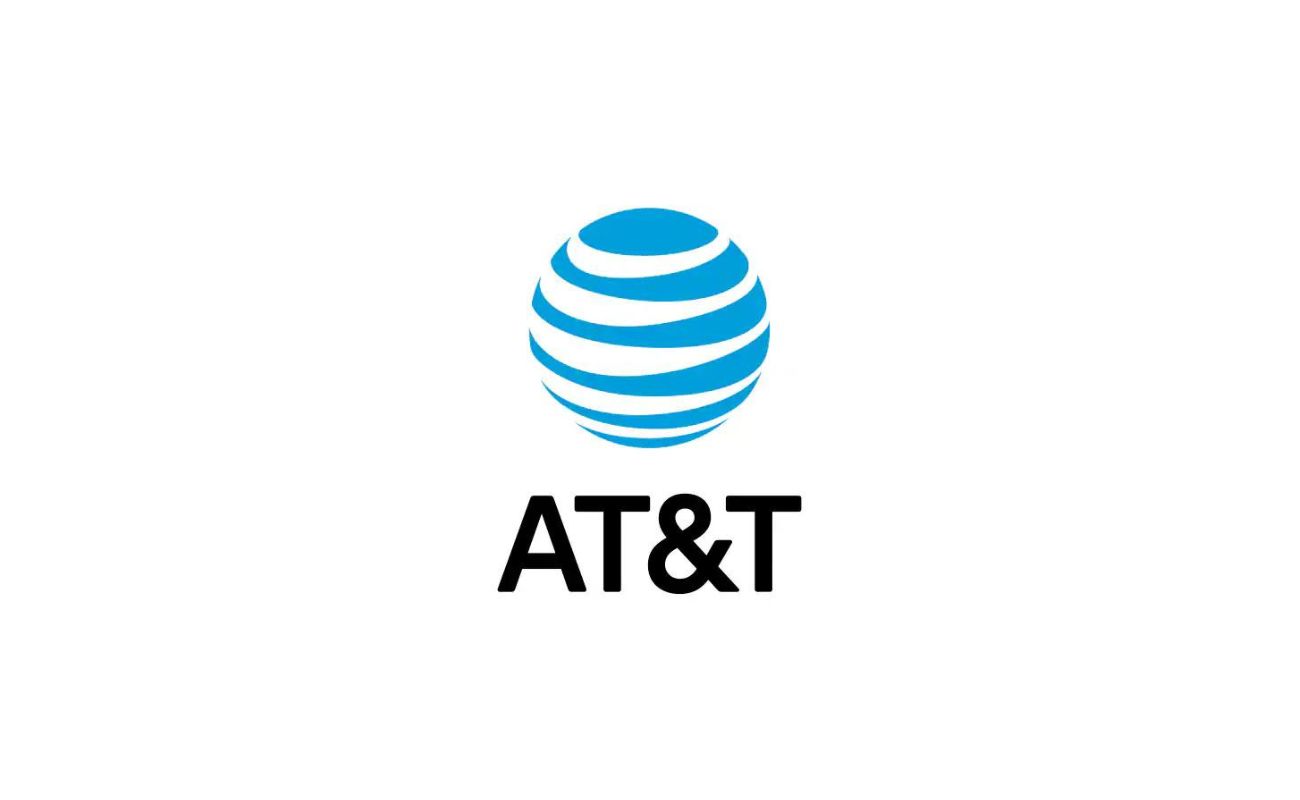Home>diy>Building & Construction>What Is Construction Insurance Policy


Building & Construction
What Is Construction Insurance Policy
Modified: December 7, 2023
Protect your construction project with a comprehensive building construction insurance policy. Safeguard against potential risks and ensure peace of mind.
(Many of the links in this article redirect to a specific reviewed product. Your purchase of these products through affiliate links helps to generate commission for Storables.com, at no extra cost. Learn more)
Introduction
Welcome to the world of construction! Whether you’re involved in building commercial structures, residential homes, or infrastructure projects, one thing is certain – construction is a complex and demanding industry. With so many moving parts and unpredictable factors, it’s crucial to have the right protection in place to safeguard your projects and investments.
One vital component of risk management in construction is having a comprehensive construction insurance policy. This policy acts as a safety net, providing financial protection against a wide range of potential risks and liabilities that can arise during the course of a construction project.
In this article, we will explore the intricacies of construction insurance policies, including their definition, types, coverage, and importance. Additionally, we’ll discuss the factors to consider when choosing a construction insurance policy, common exclusions, the claims process, and the cost associated with obtaining such insurance.
So, whether you’re a contractor, developer, project owner, or simply curious about this industry, continue reading to gain a deeper understanding of construction insurance policies and how they play a vital role in shielding construction projects from unforeseen events.
Key Takeaways:
- Construction insurance policies are crucial for protecting construction projects and stakeholders from financial risks, ensuring compliance, and providing peace of mind.
- When choosing a construction insurance policy, consider project scope, policy coverage, exclusions, and the claims process to ensure adequate protection and smooth project execution.
Definition of Construction Insurance Policy
A construction insurance policy, also known as builders risk insurance or construction all risk insurance, is a specialized type of insurance coverage designed to protect construction projects and the parties involved from various risks and liabilities.
Construction insurance policies provide coverage for property damage, theft, vandalism, natural disasters, and other unforeseen events that can occur during the construction process. These policies are typically tailored to the unique needs of each project and can cover various project types, such as commercial buildings, residential homes, infrastructure projects, renovations, and more.
Construction insurance policies differ from standard property insurance policies because they encompass not only the physical structure but also the materials, equipment, and machinery used in the construction process. They are designed to cover both the owner/developer and the contractors involved.
This type of insurance is typically obtained at the start of the construction project and remains in effect until the project is completed. It provides peace of mind to all parties involved by mitigating financial risks associated with potential losses or damages that may occur during the construction phase.
It is important to note that construction insurance policies are not one-size-fits-all. Instead, they are tailored to meet the specific needs and requirements of each construction project. The coverage and policy terms can vary depending on the size of the project, the location, the parties involved, and other factors.
In the next sections, we will delve deeper into the types of construction insurance policies available and the coverage they provide to better understand the scope of protection offered by these policies.
Types of Construction Insurance Policies
Construction insurance policies can be classified into several types, each addressing specific aspects and risks encountered in the construction industry. Understanding the different types of policies will help you determine the most appropriate coverage for your specific project. Let’s explore some common types of construction insurance policies:
- Builder’s Risk Insurance: This is the most common type of construction insurance policy. It provides coverage for the structure and materials during the construction phase. It typically covers risks such as fire, theft, vandalism, and weather-related damages. Builder’s risk insurance can protect the owner, the general contractor, subcontractors, and lenders involved in the project.
- Public Liability Insurance: Public liability insurance is essential for construction projects where there is a risk of injury or property damage to third parties. It covers legal costs and compensation claims if someone is injured or their property is damaged due to the construction activities. This policy is especially crucial for projects that involve interaction with the public, such as building constructions near sidewalks or busy roads.
- Professional Indemnity Insurance: Professional indemnity insurance is important for architects, engineers, and other professionals involved in the design and planning phase of the construction project. It provides coverage for claims arising from errors, omissions, or negligence in professional services. This policy protects professionals against legal costs and damages resulting from professional liability claims.
- Contractor’s All Risk Insurance: Contractor’s all risk (CAR) insurance is a comprehensive policy that provides coverage for both property damage and third-party liability. It covers risks such as accidental damage to the construction site, materials, and equipment, as well as third-party injury or property damage caused by the construction activities. This policy is usually taken out by the main contractor and can also cover subcontractors involved in the project.
- Environmental Liability Insurance: Construction projects can have significant impacts on the environment. Environmental liability insurance provides coverage for claims arising from pollution, contamination, or other environmental damage caused by the construction activities. This policy is particularly important for projects involving hazardous materials, demolition, or excavation.
These are just a few examples of the various types of construction insurance policies available. It’s important to work with an experienced insurance broker or agent who can assess your project’s specific needs and recommend the most suitable policies for your construction venture.
Coverage Provided by Construction Insurance Policies
Construction insurance policies offer a wide range of coverage to protect against the risks and liabilities that can arise during a construction project. The exact coverage provided can vary depending on the policy, project specifications, and the insurance provider. Here are some common types of coverage offered by construction insurance policies:
- Property Damage: This coverage protects against damage or loss to the construction site, including the structure, materials, equipment, and machinery. It may cover risks such as fire, theft, vandalism, natural disasters, and accidental damage.
- Third-Party Liability: Construction activities can cause damage or injury to third parties, such as neighboring properties or individuals passing by the construction site. Third-party liability coverage provides protection against claims and legal costs arising from bodily injury or property damage caused by the construction activities.
- Delay in Completion: Construction projects often face delays due to various factors. Delay in completion coverage compensates for additional costs incurred as a result of project delays, such as increased labor or material costs.
- Equipment Breakdown: Construction projects heavily rely on machinery and equipment. Equipment breakdown coverage provides compensation for repair or replacement costs if construction equipment breaks down due to mechanical or electrical failure.
- Debris Removal: After a construction project is completed, there may be a need for debris removal. This coverage helps cover the costs associated with clearing and disposing of debris from the construction site.
- Professional Liability: For architects, engineers, and other professionals involved in the design and planning phase, professional liability coverage protects against claims arising from errors, omissions, or negligence in professional services.
- Pollution Liability: Construction activities can have environmental impacts. Pollution liability coverage provides protection against claims and cleanup costs resulting from pollution or contamination caused by construction activities.
It’s important to note that coverage can differ between insurance policies, so it’s crucial to carefully review the policy documents and consult with an insurance professional to ensure your specific project needs are adequately covered.
Now that we’ve covered the coverage provided by construction insurance policies, let’s delve into why these policies are vital for construction projects of all sizes.
Importance of Construction Insurance Policies
Construction insurance policies play a crucial role in protecting construction projects and the parties involved from various risks and liabilities. Here are some key reasons why construction insurance policies are of utmost importance:
- Financial Protection: Construction projects involve substantial investments of time, money, and resources. Construction insurance provides financial protection against potential losses and damages that can occur during the construction process. Whether it’s property damage, theft, or third-party liability claims, having the right insurance coverage can help mitigate financial risks and ensure the project’s financial stability.
- Risk Management: The construction industry is inherently risky. From unforeseen weather events to accidents on the construction site, there are numerous potential risks that can impact a project. Construction insurance policies help project owners, contractors, and other stakeholders manage these risks effectively. By transferring the risk to an insurance provider, construction professionals can focus on their core tasks and responsibilities, knowing that they are protected against unforeseen events.
- Contractual Requirements: In many cases, construction insurance is a contractual requirement. Project owners, lenders, and other stakeholders often require contractors and subcontractors to carry specific insurance coverage to mitigate potential risks and liabilities. Failure to meet these requirements can result in legal and financial consequences, including contract termination, delays, or financial penalties. Having the necessary construction insurance policies in place ensures compliance with contractual obligations and promotes smooth project execution.
- Project Financing: When seeking project financing, lenders and investors often require proof of insurance coverage. Construction insurance policies provide assurance to lenders that their investment is protected against potential risks. Having comprehensive insurance coverage in place increases the likelihood of securing financing and attracting investment for the construction project.
- Peace of Mind: Construction projects can be stressful and unpredictable. Having proper insurance coverage gives all parties involved peace of mind, knowing that their investments, assets, and reputations are protected. It allows project owners, contractors, and subcontractors to focus on their work and responsibilities, rather than worrying about potential risks or liabilities that may arise during the construction process.
Construction insurance policies are not only prudent risk mitigation tools but also serve as a critical component of project planning and execution. They provide financial security, ensure compliance with contractual requirements, facilitate project financing, and promote peace of mind for all stakeholders involved in the construction project.
Now that we’ve covered the importance of construction insurance policies, let’s discuss the factors you should consider when choosing the right policy for your construction project.
When purchasing a construction insurance policy, make sure to carefully review the coverage limits, exclusions, and additional endorsements to ensure that your specific needs and risks are adequately addressed.
Factors to Consider when Choosing a Construction Insurance Policy
When selecting a construction insurance policy, it is essential to consider several factors to ensure that the coverage meets the specific needs of your construction project. Here are some key factors to consider:
- Project Scope and Size: The scope and size of your construction project will heavily influence the type and extent of coverage required. Larger and more complex projects may necessitate broader coverage to protect against potential risks and liabilities.
- Construction Activities: Consider the nature of the construction activities involved in your project. Different construction insurance policies offer varying levels of coverage for specific activities, such as demolition, excavation, or working with hazardous materials. Ensure that the policy aligns with the specific risks associated with your project’s activities.
- Policy Coverage: Carefully review the policy coverage to understand what risks are covered and what is excluded. Look for coverage that adequately protects your construction site, materials, equipment, and personnel. Consider factors such as property damage, theft, liability, and any unique risks associated with your project.
- Premiums and Deductibles: Evaluate the premiums and deductibles associated with the construction insurance policy. Premiums are the regular payments required to maintain the coverage, while deductibles are the portion of the loss that you would be responsible for paying before the insurance kicks in. Strike a balance between affordable premiums and deductibles that align with your risk tolerance.
- Insurance Provider: Choose a reputable and experienced insurance provider specializing in construction insurance. Look for a provider with a strong track record, financial stability, and a proactive claims handling process. Research customer reviews and seek recommendations to ensure the provider has a strong reputation within the construction industry.
- Policy Exclusions and Limitations: Examine the policy exclusions and limitations carefully. These are the conditions or circumstances for which the insurance will not provide coverage. Understanding these limitations will help you assess potential gaps in coverage and may require additional policies or endorsements to fill those gaps.
- Claims Process: Assess the claims process of the insurance provider. A smooth and efficient claims process is essential in the event you need to file a claim. Look for a provider known for prompt claim settlements and excellent customer service.
Consulting with an insurance broker or agent who specializes in construction insurance can greatly assist in navigating these considerations. They can help assess your project’s unique risks and recommend suitable coverage options from various insurance providers.
Remember, choosing the right construction insurance policy is a critical aspect of risk management. Adequate coverage safeguards against potential financial losses and liabilities, allowing you to focus on successful project completion while minimizing disruptions.
Next, let’s explore some common exclusions that you should be aware of when selecting a construction insurance policy.
Common Exclusions in Construction Insurance Policies
While construction insurance policies provide valuable coverage, it’s essential to be aware of the common exclusions that may limit coverage for certain risks or circumstances. These exclusions may vary depending on the specific policy and insurance provider. Here are some typical exclusions to consider:
- Intentional Damage or Negligence: Construction insurance policies typically exclude intentional damage or loss caused by the insured party. It also excludes damages resulting from negligence or failure to adhere to safety protocols. It’s crucial to maintain proper construction practices and adhere to safety regulations to avoid potential exclusions.
- Pre-existing Conditions: Insurance policies often exclude coverage for pre-existing conditions or defects in the property or materials. It’s important to address any known issues before obtaining insurance to avoid potential coverage gaps.
- War, Terrorism, or Nuclear Events: Most construction insurance policies exclude coverage for damages caused by war, terrorism, or nuclear events. Separate policies may be required to protect against these specific risks.
- Contractual Obligations: Construction insurance policies may exclude coverage for penalties or financial consequences resulting from failure to meet contractual obligations. It’s essential to review your contracts carefully and ensure compliance to avoid potential exclusions.
- Environmental Pollution or Contamination: Standard construction insurance policies often exclude coverage for pollution or contamination caused by construction activities. Separate environmental pollution liability insurance may be necessary to address these risks.
- Existing Structures or Properties: Policies may exclude coverage for damages to existing structures or properties that are being renovated or involved in the construction project unless specifically included in the coverage.
- Wear and Tear or Faulty Workmanship: Normal wear and tear or damages caused by faulty workmanship are typically excluded from coverage. It’s vital to maintain proper construction standards and address any deficiencies promptly to mitigate potential risks.
- Acts of Government Authorities: Some policies may exclude coverage for damages caused directly or indirectly by actions taken by government authorities, such as permits being revoked or construction being halted due to regulatory or legal issues. Ensuring compliance with all applicable regulations can help minimize the impact of these exclusions.
It’s crucial to carefully review the policy documents and fully understand the exclusions and limitations specific to your construction insurance policy. Addressing any potential coverage gaps or exclusions may require additional policies, endorsements, or risk management measures to adequately protect your construction project.
Next, let’s explore the claims process associated with construction insurance policies and the steps involved in filing a claim.
Claims Process for Construction Insurance Policies
If an unforeseen event or loss occurs during your construction project, it’s important to understand the claims process associated with your construction insurance policy. The claims process typically involves several key steps:
- Notify the Insurance Provider: As soon as the loss or damage occurs, it’s crucial to notify your insurance provider promptly. Contact the designated claims representative or department provided by the insurance company. Provide detailed information about the incident, including the date, time, location, and nature of the loss.
- Document the Damage: Take photographs and videos of the damages and gather any other relevant evidence to substantiate your claim. This documentation will help support your case during the claims process.
- File the Claim Form: Your insurance provider will provide you with a claim form to complete. Fill out the form accurately and provide all required information. Be sure to include any supporting documentation, such as invoices, receipts, or repair estimates.
- Cooperate with the Adjuster: An insurance adjuster will be assigned to assess the damages and validate the claim. Coordinate with the adjuster to schedule a visit to the construction site and provide access to the affected areas. Be prepared to answer any questions or provide additional information requested by the adjuster.
- Review the Claim Settlement: Once the assessment is complete, your insurance provider will review the claim and determine the settlement amount based on the terms and coverage outlined in your policy. They will communicate the settlement offer to you, outlining the amount they are willing to pay to resolve the claim.
- Negotiate and Settle: Review the settlement offer carefully and consider seeking professional advice if needed. If you believe the settlement amount is not adequate, you can negotiate with the insurance provider to reach a fair resolution. Once an agreement is reached, a settlement will be made.
- Claim Payment: Once the settlement is finalized, the insurance provider will issue a payment to cover the agreed-upon amount, reimbursing you for the losses or damages specified in your claim. Ensure that the payment is received promptly and review the details to confirm that it aligns with the settlement agreement.
- Claim Closure: After the payment has been received and any applicable repairs or replacements have been completed, the claim will be officially closed. Keep all documentation related to the claim for future reference and record-keeping purposes.
It’s important to note that the claims process may differ slightly depending on your insurance provider and the specific policy terms. Communicate closely with your insurance provider throughout the process to ensure a smooth and efficient resolution of your claim.
Now that we understand the claims process, let’s discuss the cost aspect of construction insurance policies.
Cost of Construction Insurance Policies
The cost of construction insurance policies can vary based on several factors, including the project’s scope, the location, the type of coverage required, and the insurance provider chosen. Here are some key factors that can impact the cost of construction insurance:
- Project Size and Value: Larger construction projects with higher values typically entail higher insurance costs. The insurance premium is often calculated based on the project’s estimated value and the level of risk associated with it.
- Type of Coverage: The type and extent of coverage needed will influence the insurance cost. More comprehensive coverage that includes additional protections such as pollution liability or professional indemnity insurance will typically result in higher premiums.
- Construction Activities: Certain construction activities, such as working with hazardous materials or performing high-risk tasks, can increase the insurance premium. The insurance provider will consider the level of risk associated with the specific activities involved in the project.
- Project Duration: The duration of the construction project can affect the insurance cost. Longer projects may have higher premiums since there is a greater exposure to risks over an extended period. Shorter projects may have lower premiums due to the reduced time frame for potential claims or losses.
- Location: The geographical location of the construction project can impact insurance costs. Areas prone to natural disasters, high crime rates, or other risks may have higher premiums to account for these elevated risks.
- Claims History: The claims history of the project owner, contractors, or subcontractors involved can influence the cost of insurance. If the parties have a history of filed claims or have been involved in high-risk projects, it may lead to higher premiums.
- Insurance Provider: Different insurance providers may offer varying rates for the same coverage. It’s advisable to obtain quotes from multiple providers and compare the premiums and terms they offer. Choose a reliable provider with a solid reputation and strong financial stability.
It’s important to note that the cost of construction insurance should be viewed as an investment in protecting your construction project and mitigating potential risks. While it may be tempting to opt for the lowest premium, it’s crucial to ensure that the coverage adequately meets your project’s needs and provides sufficient financial protection.
To get an accurate estimate of the insurance cost for your construction project, it’s recommended to work with an experienced insurance broker or agent who specializes in construction insurance. They will evaluate your project’s unique characteristics and requirements to provide you with a tailored policy and an associated premium.
Now that we’ve covered the cost aspect of construction insurance policies, let’s wrap up the article with a recap of the key points discussed.
Read more: How To Get Construction Insurance
Conclusion
Construction insurance policies are essential in protecting construction projects and the parties involved from potential risks and liabilities. These policies provide financial protection, help manage risks, ensure compliance with contractual requirements, facilitate project financing, and provide peace of mind for all stakeholders.
When selecting a construction insurance policy, it’s important to consider factors such as project scope and size, construction activities, policy coverage, premiums and deductibles, the reputation of the insurance provider, and policy exclusions and limitations.
Common exclusions in construction insurance policies may include intentional damage, pre-existing conditions, war or terrorism events, contractual obligations, environmental pollution, existing structures, and faulty workmanship. Understanding these exclusions is crucial for addressing potential coverage gaps.
The claims process for construction insurance policies typically involves notifying the insurance provider, documenting the damage, filing the claim form, cooperating with the adjuster, reviewing the claim settlement, negotiating if needed, receiving the claim payment, and closing the claim.
The cost of construction insurance policies can vary based on project size and value, type of coverage required, construction activities, project duration, location, claims history, and the insurance provider chosen. It’s important to view the cost as an investment in protecting the project and selecting coverage that adequately meets its needs.
In conclusion, construction insurance policies are a vital component of risk management in the construction industry. They provide financial security and peace of mind, ensuring that construction projects can proceed with confidence while mitigating potential risks. By carefully choosing and understanding the right insurance policy, construction professionals can protect their investments and ensure successful project completion.
Now that you have a comprehensive understanding of construction insurance policies, you can confidently navigate the world of construction and make informed decisions to safeguard your projects and interests.
Frequently Asked Questions about What Is Construction Insurance Policy
Was this page helpful?
At Storables.com, we guarantee accurate and reliable information. Our content, validated by Expert Board Contributors, is crafted following stringent Editorial Policies. We're committed to providing you with well-researched, expert-backed insights for all your informational needs.














0 thoughts on “What Is Construction Insurance Policy”